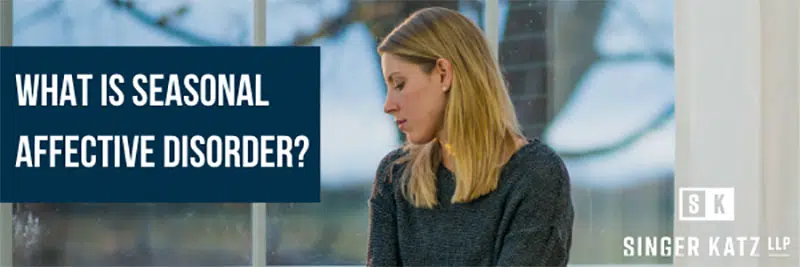
Seasonal Affective Disorder: A debilitating disorder caused by seasonal change
Seasonal Affective Disorder (SAD) is a type of depression that occurs as a result of seasonal change. It affects hundreds of thousands of Canadians every year. Symptoms of SAD include sadness, fatigue, inability to concentrate, lack of motivation and, in some cases, a change in weight. This is not simply a case of the “winter blues” as SAD is an impairing disorder that persists over several months.
SAD primarily begins near the middle or end of the fall season and continues into the winter months as the weather gets colder and the days become shorter. There are also some people who experience depression from SAD during the spring and summer months. Regardless of season, symptoms are often mild at the start and gradually increase if untreated.
Less natural light in the winter is the main reason why SAD is commonly associated with the winter months. A lower level of natural light can not only lead to a decrease in serotonin (a chemical that enhances our energy and mood) but may also affect sleeping patterns and melatonin count.
SAD can make it difficult for people to put in the effort to establish and maintain positive relationships with others. It may also cause a lack of focus thereby negatively affecting overall productivity and output on tasks and projects. It has the ability to make every aspect of life more difficult regardless of whether an individual is at work, at school or at home.
It is estimated that two to three percent of the general population in Canada suffer from SAD. This disorder accounts for ten percent of all cases of depression in the country. Those most likely to develop SAD include adults who have a family history of the disorder (or another form of depression) an people who live in northern countries and cities. Adults are more likely to develop SAD than children and teenagers and women are more susceptible than men.
If you have a disability claim resulting from Seasonal Affective Disorder and your claim has been denied, please do not hesitate to contact us.








